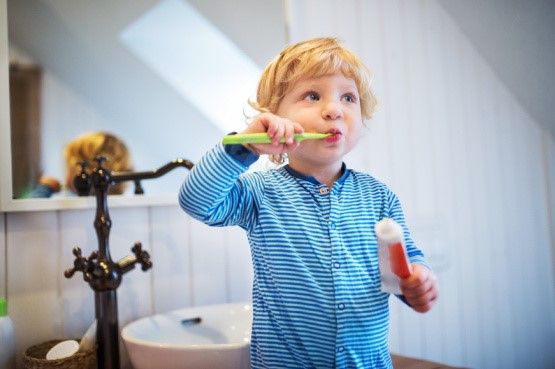Does stress cause skin problems?
Stress can affect our health in many ways. Did you know, for example, that stress can cause skin problems such as itching or rashes? In this article, I look at the links between stress and skin problems. I also discuss ways you can manage them when they happen at the same time.

What is stress?
Stress is mainly a physical response to situations or events. It’s caused by your body releasing ‘fight or flight’ hormones. These are chemicals produced by your body, such as adrenaline. They contribute to this fight or flight response.
Stress also affects how you feel when you find it difficult to cope with being under pressure. For example, moving house, changing jobs or having a baby.
Everyone reacts to stress differently. The way you respond can depend on your personality and how you respond to challenging situations.
How does stress affect your skin?
When you’re stressed, your body releases ‘stress hormones’, such as adrenaline and cortisol. They affect different functions, like the flow of blood to your skin. A common sign of stress is skin irritation or a rash.
There are some other stress-related skin problems to look out for.
- You might have temporary hair loss and a sore scalp after a stressful event like bereavement or a major operation. Your hair may also go grey due to stress.
- Extreme or sudden stress may also lead to vitiligo if it runs in your family. This is a condition where pale white patches develop on the skin.
- There’s a type of hive called ‘adrenergic urticaria’ that is caused by stress. Hives are red, itchy, raised bumps that appear on the skin.
Ongoing stress can also weaken your immune system. This makes you more vulnerable to infection and skin diseases like vitiligo (loss of skin colour) and chronic urticaria (another name for hives). These are autoimmune diseases. This means your body thinks it’s fighting an infection and produces chemicals that attack normal cells.
Stress can trigger inflammatory conditions like rosacea. This is a common skin condition that can cause redness and visible blood vessels on your face.
If you’ve already got a skin condition like acne, stress can make it worse. Stress may also trigger flare-ups of problems caused by something else, such as an infection. One example is the herpes simplex virus, which causes cold sores. It lies dormant (not active) in your body but can cause symptoms when you’re stressed or run down.
What does responding to stress do to the skin?
Stress can be hard to avoid. How you respond to it can affect your skin too.
Stress can keep you awake at night. It may also increase the urge to scratch itchy eczema and urticaria. This can make it even harder to get a good night’s sleep.
You might find you turn to sugary and fatty comfort foods, alcohol, caffeine or smoking to cope with stress. But they aren’t good for either your overall health or your skin.
Alcohol and hot drinks, for example, can cause skin redness, such as rosacea. They can also trigger the itchiness of urticaria. Alcohol can dehydrate your skin. Dry skin can make eczema worse and more itchy. Smoking and drinking too much can make psoriasis worse too.
Stress can also trigger habits called ‘body-focused repetitive behaviours’. This includes things like pulling at your hair and lashes or picking at your skin. They can seem a form of short-term stress relief but are damaging in the long term.
Do skin conditions lead to feeling stressed?
Skin conditions may also cause stress because of how they make you feel about yourself. They can also impact your everyday life including your social activities and relationships. You can end up in a ‘vicious cycle’.
For instance, you might worry about stress causing a flare-up and this can make it more difficult to cope with whatever’s making you stressed.
It’s important to break this cycle. Talk to your doctor about tackling both problems together. Relaxation techniques can help to reduce stress and the ‘habit scratching’ that makes eczema worse.
How do you fix stressed skin?
See your GP if your mental health is being affected by skin problems, they can suggest suitable treatments. Cognitive behavioural therapy (CBT) is a type of talking therapy. It aims to change negative thoughts and beliefs. CBT can help to reduce stress and may even improve skin disease symptoms. You might find it helps to address any body-focused repetitive behaviours too.
Mindfulness is about being present in the moment. It makes you more aware of how you feel, both emotionally and physically. It can help you be kinder to yourself. Mindfulness has shown to be helpful for acne, psoriasis and vitiligo.
Physical activity can also reduce your risk of stress, boost your mental and physical wellbeing. Exercise can also help you sleep better.
Your doctor can talk to you about ‘good sleep hygiene’ too, so you get the rest needed to deal with stress.
Getting help and support for stress and skin problems
Speak to your doctor, who can also suggest support groups and healthy lifestyle advice. These may help you feel better able to cope with both stress and your skin problem.
You may not be able to avoid stress altogether. But there are ways to reduce stress levels and its impact on your skin.
If you’re worried about your mental health, our direct access service aims to provide you with the advice, support and treatment you need as quickly as possible. You’ll be able to get mental health advice and support usually without the need for a GP referral. Learn more today.
-
Sources Sources
- Stress. Mental Health Foundation. mentalhealth.org.uk, last updated September 2021
- Graubard R, Perez-Sanchez A, Katta R. Stress and Skin: An Overview of Mind Body Therapies as a Treatment Strategy in Dermatology. Dermatol Pract Concept. 2021 Sep 1;11(4):e2021091. doi: 10.5826/dpc.1104a91
- Telogen effluvium. British Association of Dermatologists, bad.org.uk, published May 2020
- Alopecia areata. Causes. NICE Clinical Knowledge Summaries. cks.nice.org.uk, last revised March 2023
- Zhang H, Wang M, Zhao X, et al. Role of stress in skin diseases: A neuroendocrine-immune interaction view. Brain Behav Immun. 2024 Feb;116:286-302. doi: 10.1016/j.bbi.2023.12.005
- What causes vitiligo? The Vitiligo Society. vitiligosociety.org, accessed September 2024
- Vitiligo. NICE Clinical Knowledge Summaries. cks.nice.org.uk, last revised January 2022
- Slater KN, Abu-Zahra A, Kartono F. Adrenergic Urticaria: An Updated Review. Cureus. 2024 Jun 11;16(6):e62171. doi: 10.7759/cureus.62171. https://www.ncbi.nlm.nih.gov/pmc/articles/PMC11238893/
- Urticaria. NICE Clinical Knowledge Summaries. cks.nice.org.uk, last revised, March 2024
- Rosacea. British Skin Foundation. knowyourskin.britishskinfoundation.org.uk, accessed September 2024
- Passeron T, Zouboulis CC, Tan J et al. Adult skin acute stress responses to short-term environmental and internal aggression from exposome factors. J Eur Acad Dermatol Venereol. 2021 Oct;35(10):1963-1975. doi: 10.1111/jdv.17432
- Herpes simplex. British Association of Dermatologists. bad.org.uk, accessed September 2024
- Eczema. British Skin Foundation. knowyourskin.britishskinfoundation.org.uk, accessed September 2024
- Urticaria and angioedema. British Skin Foundation. knowyourskin.britishskinfoundation.org.uk, accessed September 2024
- Skin health. British Dietetic Association. bda.uk.com, published April 2020
- Psoriasis. Trigger factors. NICE Clinical Knowledge Summaries. cks.nice.org.uk, last revised September 2023
- Body-Focused Repetitive Behavior Disorder. MSD Manuals. msdmanuals.com, revised June 2023
- Living with skin disease. Patient. patient.info, last updated September 2023
- Revankar RR, Revankar NR, Balogh EA, et al. Cognitive behavior therapy as dermatological treatment: a narrative review. Int J Womens Dermatol. 2022 Dec 23;8(4):e068. doi: 10.1097/JW9.0000000000000068
- Mindfulness. Mental Health Foundation. mentalhealth.org.uk, last updated August 2021
- Physical activity guidelines: UK Chief Medical Officers' report. Department of Health and Social Care. gov.uk, published September 2019
About our health information
At Bupa we produce a wealth of free health information for you and your family. This is because we believe that trustworthy information is essential in helping you make better decisions about your health and wellbeing.
Our information has been awarded the PIF TICK for trustworthy health information. It also follows the principles of the The Information Standard.

More general health advice articles
Did you find our advice helpful?
We’d love to hear what you think. Our short survey takes just a few minutes to complete and helps us to keep improving our healthy lifestyle articles.
Legal disclaimer
This information was published by Bupa's Health Content Team and is based on reputable sources of medical evidence. It has been reviewed by appropriate medical or clinical professionals and deemed accurate on the date of review. Photos are only for illustrative purposes and do not reflect every presentation of a condition.
Any information about a treatment or procedure is generic, and does not necessarily describe that treatment or procedure as delivered by Bupa or its associated providers.
The information contained on this page and in any third party websites referred to on this page is not intended nor implied to be a substitute for professional medical advice nor is it intended to be for medical diagnosis or treatment. Third party websites are not owned or controlled by Bupa and any individual may be able to access and post messages on them. Bupa is not responsible for the content or availability of these third party websites. We do not accept advertising on this page.







